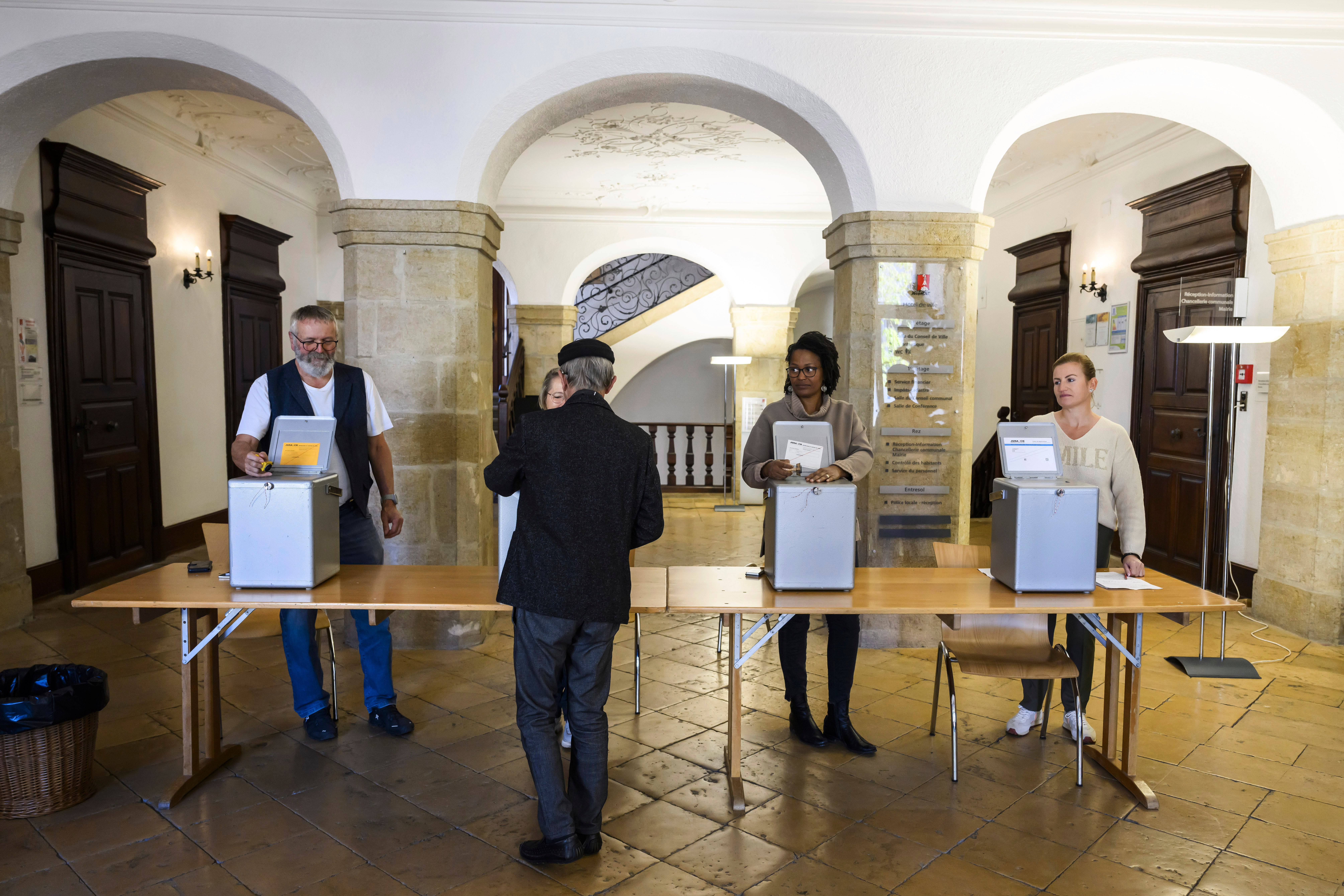A Swiss populist party rebounds and the Greens sink in the election. That's a big change from 2019
Official results in Switzerland election show that the anti-immigration populist Swiss People’s Party has rebounded from searing losses four years ago to cement and expand its hold as the largest faction after the parliamentary election

Switzerland's anti-immigration populist Swiss People's Party rebounded from searing losses four years ago to cement and expand its hold as the largest parliamentary faction after the election, official results showed, as two environmentally-minded parties lost ground despite record glacier melt in the Alpine country.
Pre-election polls suggested that Swiss voters had three main concerns: Rising fees for the obligatory, free market-based health insurance system; climate change, which has eroded Switzerland’s many glaciers; and worries about migrants and immigration.
The final tally late Sunday showed the people's party, known as SVP by its German-language acronym, gained nine seats compared to the last vote in 2019, and climbed to 62 overall in parliament's 200-seat lower house. The Socialists, in second, added two seats to reach 41 in that chamber, known as the National Council.
It marked the latest sign of a rightward turn in Europe, after victories or electoral gains by conservative parties in places like Greece, Sweden and Italy over the last year, even if voters in Poland rejected their national conservative government last week.
A new political alliance calling itself The Center, born of the 2021 fusion of the center-right Christian Democrat and Bourgeois Democrat parties, made its parliamentary election debut and took third place — with 29 seats, eclipsing the free-market Liberal party, which lost a seat and now will have 27.
Environmentally minded factions were the biggest losers: The Greens shed five seats and will now have 23, while the more centrist Liberal-Greens lost six, and now will have 10.
Political analyst Pascal Sciarini of the University of Geneva said Monday that the result was largely a “swing of the pendulum” and that support for the Greens was diluted in part because many voters felt they had already taken a big step toward protecting the environment by overwhelmingly approving a climate bill in June that will curb Switzerland's greenhouse gas emissions.
Bookmark popover
Removed from bookmarks